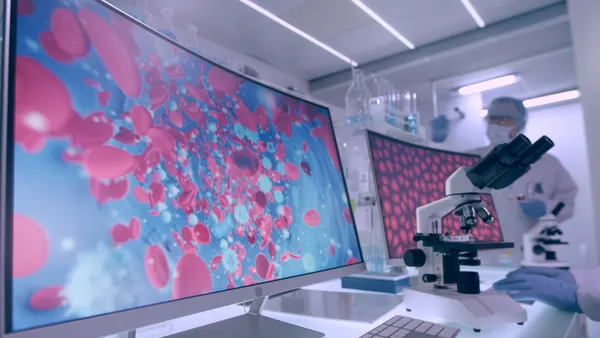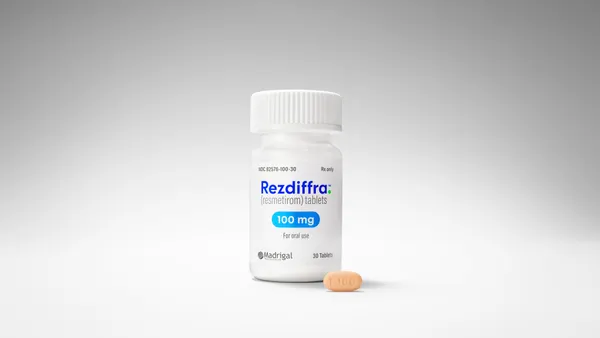 Simulation as we think of it today has been used in medical education since the 18th century,1 and has continued to evolve into realistic and medically accurate physical and digital solutions designed to allow learners to simulate a scenario-based encounter with a patient in a safe environment.
Simulation as we think of it today has been used in medical education since the 18th century,1 and has continued to evolve into realistic and medically accurate physical and digital solutions designed to allow learners to simulate a scenario-based encounter with a patient in a safe environment.
Virtual Patient Simulations
Virtual patient simulation is an impactful way to help clinicians learn. Virtual patient simulations are goal-oriented, case-based, and rule-based, and are a great way to engage learners through active decision making. The structured format of virtual patient simulation is designed to develop competencies that can be applied in real-world practice. Virtual patient simulation excels at supporting learning through engagement in complex analysis and decision making with an ever-changing clinical encounter.
MedSims is an award-winning virtual patient simulation solution from Medscape, having won:
• ACEhp Award for Outstanding Outcomes in 2020
• ACEhp Award for Innovation in CPD for the CE/CPD Professional in 2018
• 2nd place for the Technology Innovation Award at the International Meeting on Simulation in Healthcare (IMSH) in 2017
By presenting patient encounters in an immersive multimedia instructional environment, MedSims Virtual Patient Simulation (VPS) replicates real-world clinical practice to allow learners to recognize and diagnose a disease, establish and tailor an individual treatment plan using a robust medication database, and determine ongoing disease management. Immediate feedback is provided to each learner based on their in-platform actions and clinical decision making.
MedSims Platform
The MedSims platform is a proven education solution. A recent study by the Calibre Institute for Quality Medical Education resulted in a superior instructional design score for MedSims VPS, with a “high potential to engage physicians and lead to improvements in practice (ie, to achieve desired outcomes)."2
MedSims in Cardiac Care
Medscape Education recently launched a MedSims cardiology activity titled Treating Complex Patients With Stable Arterial Disease. In the activity, learners were presented with two patient-care scenarios that tested their ability to:
• Communicate via virtual interview to identify important case information
• Order an accurate and effective assessment for risk of bleeding vs the risk of cardiovascular events in complex patients with coronary artery disease
• Tailor stroke-prevention therapy in complex patients with atrial fibrillation
• Develop a patient-centered care plan to improve stroke prevention in patients with atrial fibrillation
Eight hundred seventy-four learners participated in the simulation and subsequently showed strong improvement from pre- to post-assessment. Furthermore:
• Across both cases, cardiologists more than doubled their pre-guidance performance by accurately diagnosing the patient’s condition once expert faculty-authored guidance was presented
• Cardiologists demonstrated significant learner behavior change by appropriately tailoring stroke prevention medications in complex patients with stable arterial disease, producing relative change percentage increases in the triple digits from pre- to post-education.
• Cardiologists also demonstrated significant learner behavior change in all five decision points related to developing a patient-centered care plan to improve stroke prevention in patients with atrial fibrillation
Medscape Education has been a leader in digital CME for more than 25 years, with a current membership of over 5 million physicians worldwide who use Medscape for the learning that they need. As a trusted learning partner for the medical community with proven ability to deliver education that makes an impact, Medscape is committed to delivering digital CME to learners where, when, and how they want to learn. l
1 Jones F, Passos-Neto C, Melro Braghiroli O. Simulation in medical education: Brief history and methodology. Princ Pract Clin Res. 2015;1(2):46-54.
2 Calibre CE Instructional Design Rating Scale™, Calibre Institute for Quality Medical Education, 2020.










